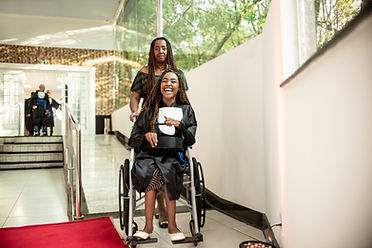Guardianship
What is Guardianship?
Guardianship is a legal arrangement in which a court appoints a responsible individual to care for and make decisions on behalf of a minor child or an adult who is unable to manage their own affairs due to incapacity or disability. The appointed guardian assumes the role of a caretaker, ensuring the well-being and safety of the person under their care(known as the ward).
Types of Guardianship
-
Temporary Guardianship: A short-term arrangement, typically granted in emergency situations
or when the ward's primary caregiver is temporarily unavailable or incapable of providing for the needs of the ward.
-
Permanent Guardianship: A long-term arrangement, in which the guardian
is responsible for the ward's care and decision-making until the ward reaches adulthood, regains capacity, or the guardianship is terminated by the court.
-
Limited Guardianship: A form of guardianship where the guardian's authority is restricted to specific areas of decision-making, based on the ward's needs and capabilities.
-
Full Guardianship: The guardian has comprehensive decision-making
authority over the ward's personal, financial, and medical affairs.
Guardianship vs. Adoption
While both guardianship and adoption involve caring for a minor, there are key differences between the two. Guardianship maybe a temporary arrangement that can be modified or terminated by the court; while adoption is a permanent legal change in the parent-child relationship. In adoption, the
adoptive parents assume all parental rights and responsibilities, whereas in guardianship, the guardian has specific decision-making authority, and the birth parents retain their legal rights.
The Guardianship Process
-
Filing a petition with the appropriate court, detailing the reasons for seeking guardianship and providing necessary documentation.
-
Notifying all relevant parties, such as family members, of the petition. Attending a court hearing, where a judge will evaluate the case and determine whether guardianship is in the best interests of the ward.
-
If guardianship is granted, fulfilling any ongoing reporting requirements,such as submitting annual reports on the ward's well-being.
Criteria for Selecting a Guardian
-
The guardian's relationship with the ward.
-
The guardian's ability to provide a stable, loving and protective environment.
-
Their willingness to take on the responsibility
-
The guardian's physical, emotional, and financial capabilities
Guardians' Rights and Responsibilities
-
Making decisions regarding the ward's education, healthcare, and living arrangements.
-
Providing for the ward's basic needs, such as food, clothing, and shelter.
-
Managing the ward's financial affairs, if applicable.
Termination or Modification of Guardianship
-
The ward reaching adulthood.
-
The ward regaining capacity to make decisions.
-
The guardian becoming unable, unsuitable or unwilling to fulfill their duties.



